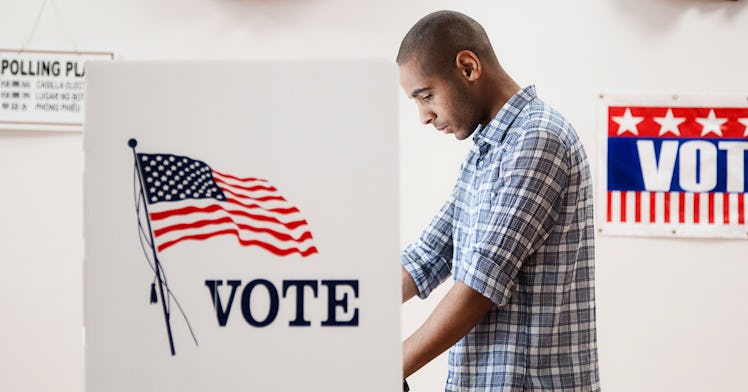Why Fathers of Daughters Vote for Gender Equality (and Other Men Don’t)
Having a daughter fundamentally changes the way that men vote.

Although the phrase, “I am the father of a daughter,” (usually stated in a political context, one that generally has some argument about women’s rights in the center of it) is sometimes met with feminist derision, the fact is that men who have daughters behave differently. This is doubly true on election day. Research shows that men who have daughters and, even more specifically, men who have first-born daughters, vote for gender equality. The data suggests that having a first-born daughter makes men more open to progressive, inclusive solutions to social and political problems and more willing to give credence to the idea that representation matters.
The cutting edge research on dad voters comes largely courtesy of Jill Greenlee, an Associate Professor of Politics at Brandeis University who has spent the large bulk of her career studying how parenthood affects individual social and political decision-making. In her seminal work “The First-Daughter Effect,” Greenlee and her co-researcher use cross-sectional survey data from the 2016 Cooperative Congressional Election Study of 64,000 American adults and individual responses from 1,500 parents to show that views on gender-centric issues like Title IX, the income gap, and sexual harassment laws are correlated with different birth patterns. The study, it should be noted, controlled for factors like race, education, religiosity, and the respondent’s support in general of gender equality. By using the “Hostile Sexism Scale,” Greenlee also controlled for prejudice against women. Across all respondents, men who had first-born daughters responded far more favorable to gender-equitable policies.
The finding in this study supports what Greenlee has found in other studies: Having a daughter makes men aware of, and supportive of, policies that intend to close the gender gap, and that among men who support these policies, men with daughters are the most enthusiastically supportive of them. Put differently: Having a daughter profoundly affects many men’s political identities.
Greenlee and her colleagues have dubbed the phenomenon they discover the “First-Daughterhood Effect” and hypothesize that the birth of a female child leads many men to think critically about the obstacles their child is likely to face and how those obstacles are affected by political and social behavior. In other words, men with first-born daughters continue to vote selfishly, but expand their selfishness to include the child they love. Greenlee and her researchers refer to this as “linked-fate.”
Interestingly, women don’t tend to change their political views after having a child.
Greenlee also found that, among dads who already had a keen interest in gender equality before having kids, conviction strengthened and revealed itself in unexpected ways. There’s other evidence to support this conclusion. A 2016 study found that many dads became activists on behalf of Title IX after seeing the effect it had on their kids.
It should also be noted that Greenlee’s research only extends to gender equality. There is no evidence that suggests that dads of daughters become more liberal in general; views on affirmative action, taxes, and healthcare policy don’t change. It’s just gender equality.
This article was originally published on